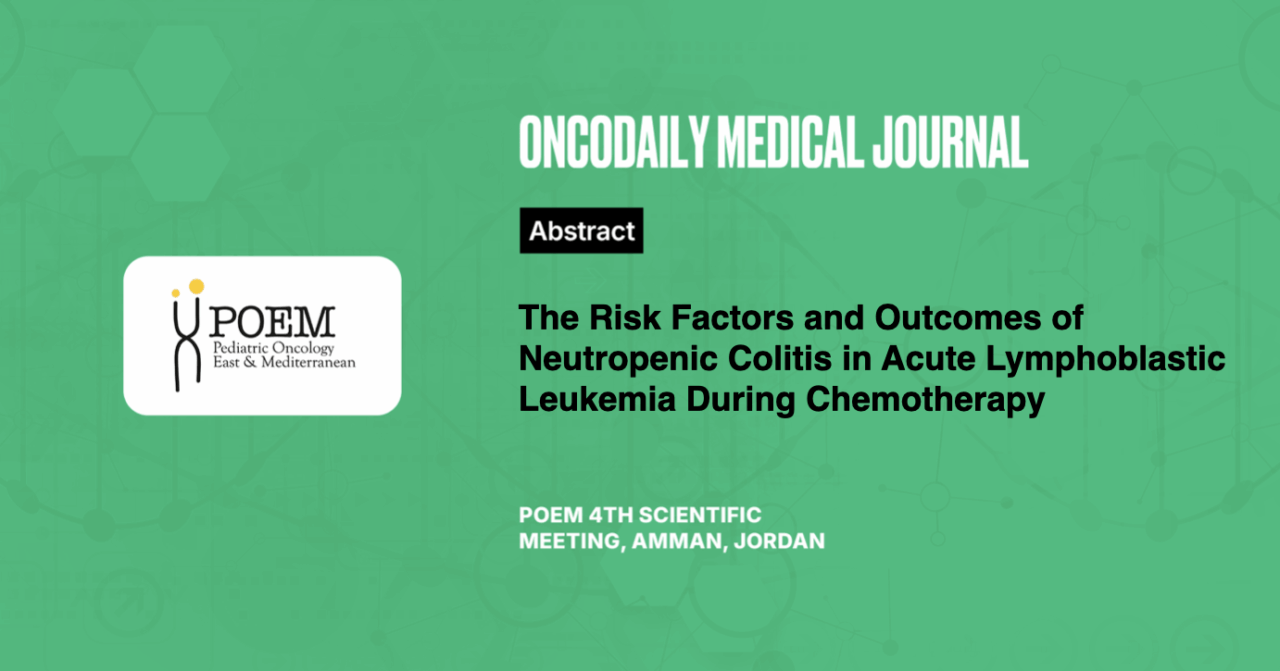The Risk Factors and Outcomes of Neutropenic Colitis in Acute Lymphoblastic Leukemia During Chemotherapy
Abstract
Introduction: Pediatric oncology has made significant strides in recent years, improving survival rates and quality for children with blood cancers such as acute lymphoblastic leukemia (ALL). However, intensive chemotherapy often leads to severe side effects, including gastrointestinal complications like neutropenic enterocolitis (NEC), which can be fatal if not promptly diagnosed and managed. NEC is characterized by inflammation and necrosis of the bowel, commonly affecting the cecum and ascending colon in immunocompromised patients. The condition poses a significant risk to children undergoing chemotherapy, with reported mortality rates as high as 50-100%. This study aims to evaluate the risk factors and outcomes of neutropenic colitis in children with acute lymphoblastic leukemia during chemotherapy.
Methodology: A prospective observational study will be conducted at the Pediatric Hematology & Oncology Department of Indus Hospital & Health Network. The study will include children aged 1-16 years diagnosed with ALL who are undergoing active chemotherapy and present with neutropenia and gastrointestinal symptoms (abdominal pain, diarrhea, etc.). Patients will be classified into two groups: definite NEC (with radiologic confirmation of bowel wall thickening) and probable NEC (without imaging confirmation). Data will be analyzed using SPSS version 26, with quantitative variables reported as mean (SD) or median (IQR) and qualitative variables as frequency and percentages.
Results: The study will provide insights into the prevalence of NEC, identify associated risk factors such as corticosteroid use, prolonged neutropenia, and antibiotic use, and evaluate the effectiveness of different treatment approaches, including bowel rest and prompt antibiotics.
Conclusion: This research aims to contribute to a better understanding of the pathophysiology, diagnosis, and management of neutropenic colitis in pediatric ALL patients, ultimately guiding clinicians in improving outcomes for children facing this life-threatening complication during chemotherapy





